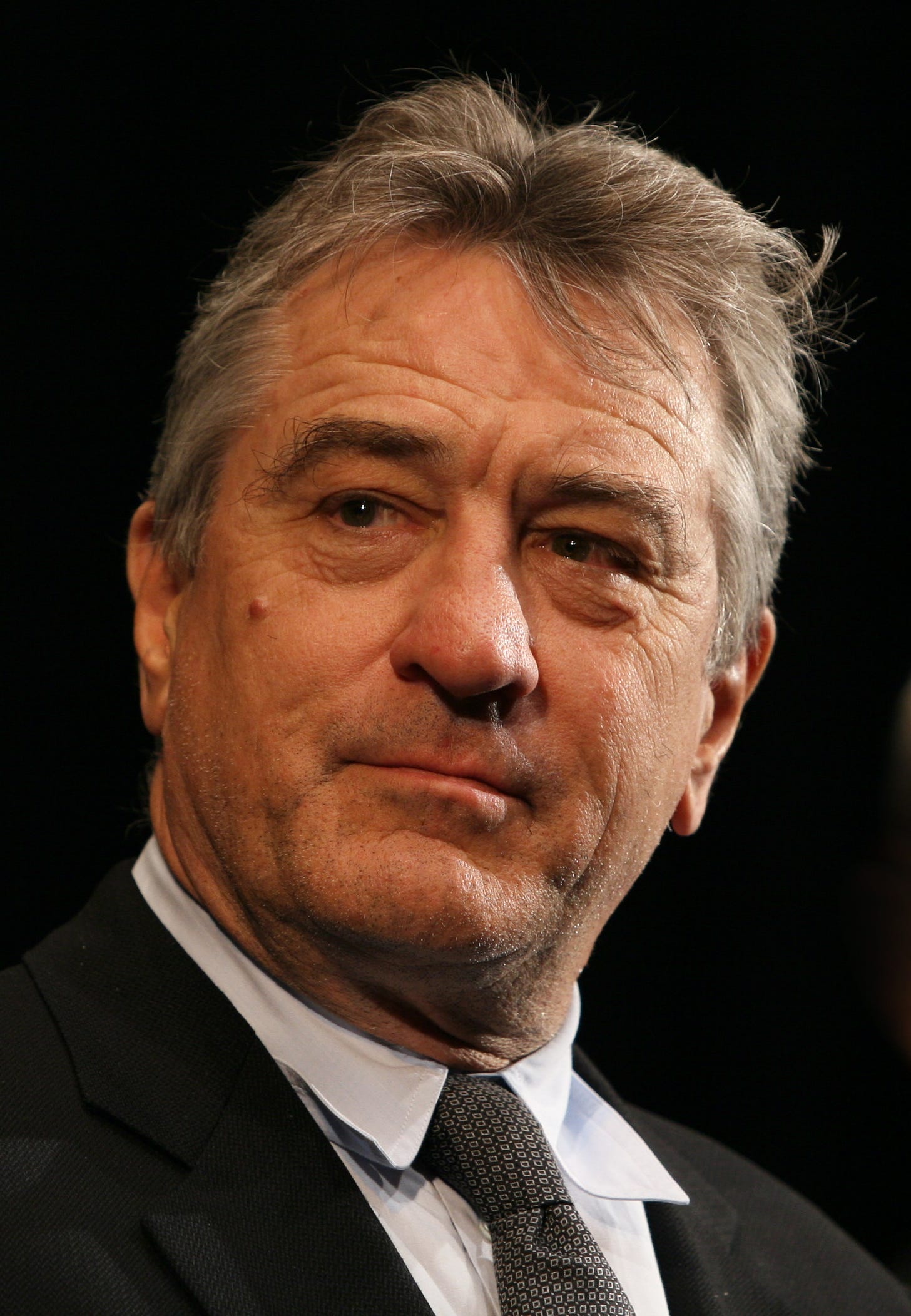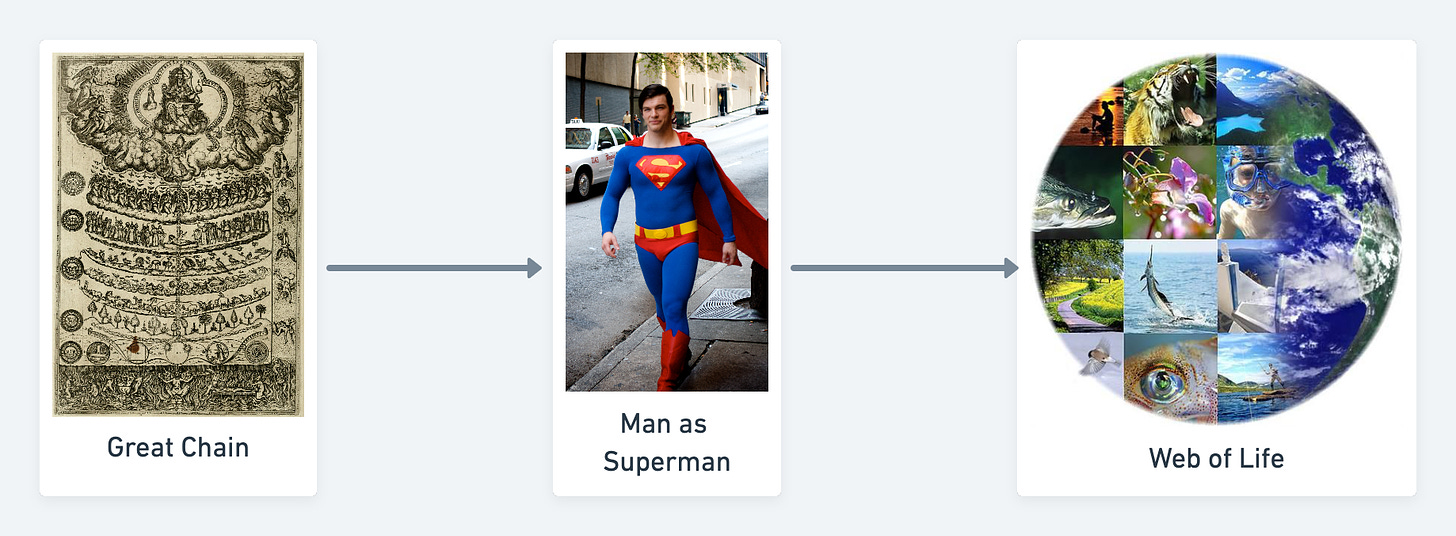Quaery
I like the connector “qua,” used by philosophers when they want to discuss X seen as Y. For example, I might want to talk about Robert de Niro qua Actor, which is how we typically talk about him, as a talented actor. I might also want to talk about Robert de Niro qua Human, which will focus on his character and personality as a human being outside the movie studio. I could also want to talk about Robert de Niro qua mammal, his specific qualities as a bipedal animal.
And so on: we shine the light of Y on X when we X qua Y.
Some Y’s are better than others when qua-erying an X. It would be odd to write a biography of Robert de Niro as a mammal. However, our sense of the best quaery changes with time. Depending on current intellectual fashion, de Niro qua Human might be the better lens on the man than de Niro qua Actor.
What about humans as such? What kind of quaery should we perform on humanity?
HQH
In the great chain of being, humans occupy the highest rung of the earthly ladder - above us are angels and other ethereal beings, but everything corporeal is below us. The great chain of being emanates from God who illuminates us and everything else; in this chain, the human qua divine is the best way to understand ourselves.
In the post human world, humans are just one creature (perhaps one being) among many, sharing the capacity for sentience and reason with any number of other living creatures. Here, human qua animal or even human qua living being is the optimal lens. That shift started with Darwin and will be completed when we arrive at the consensus that humans are merely one being among many.
Or to give it a cognitive twist, we are merely one way of paying attention to the world (note the connection to last week’s discussion of attentional communities)
Like every other ontological opening, the reordering of reality that made the human question the central question of philosophy is embedded in Deshkaal and comes and goes away like anything else. It was preceded by the great chain of being and will be succeeded by the web of life.
Only in the middle - a period of a few hundred years - is the sweet spot where humans qua humans occupy the center stage, coming out of the shadow of divinity but not yet sharing the limelight with every other creature great and small.
Kant is the central theorist of humanity qua humanity
Kant was responding to two simultaneous pressures:
The massive success of mechanical philosophy in which the rational order of matter was replaced by a mechanical order.
The need to reaffirm the autonomy and moral worth of humans while being consistent with the idea that our material constitution is as mechanical as any clock.
Kant addressed both problems at once. However, there have been enormous developments since his time. The natural sciences have overtaken philosophy as the central intellectual disciplines - the human can no longer be excused from their reach. The Kantian ‘transcendental’ approach increasingly feels unsustainable. Simultaneously, there’s no reason to believe in the moral uniqueness - we now inhabit concentric circles of concern - starting with the great apes and other primates, and getting increasingly larger to include trees, rivers and the planet as a whole.
The human question is no longer the compelling center of philosophical inquiry. But then what is?
Up Next
Over the next three weeks, I am hoping to give a bird’s eye view of two transitions: the transition from the great chain of being to the self-creating human and the impending transition from the self-creating human to the co-creating web of life.
Next week: Use Lovejoy’s text on the Great Chain of Being to motivate the first transition.
The week after: Use Taylor’s Sources of the Self to get back to the human question and its importance.
The week after that (week five of this cycle): Use Ganeri’s book on Attention to mark the shift away from the self to the attentional human being, which will stop short of the web of life, but get us most of the way there.
These three weeks of reading and commentary will give us enough background to read Kant and in parallel, begin to grasp why the ‘human question’ was the fulcrum of modern philosophy.





